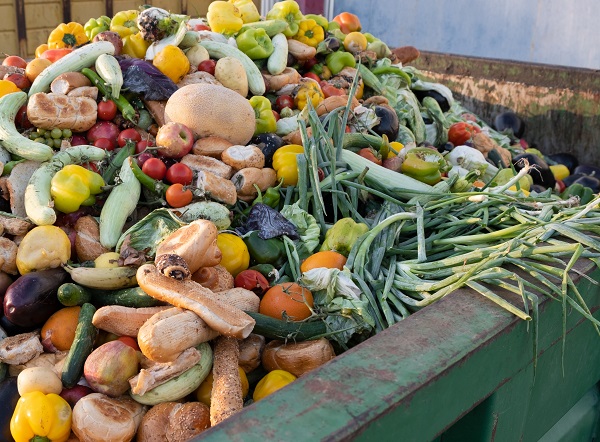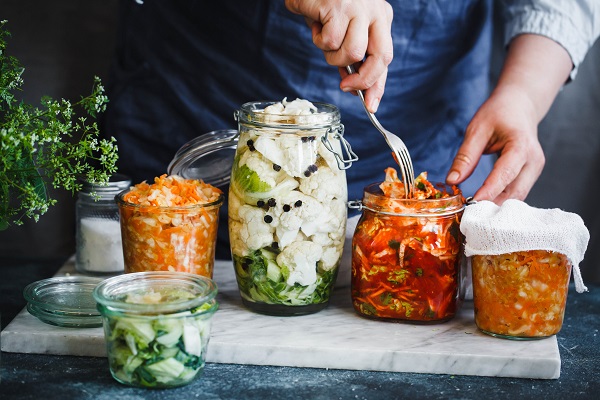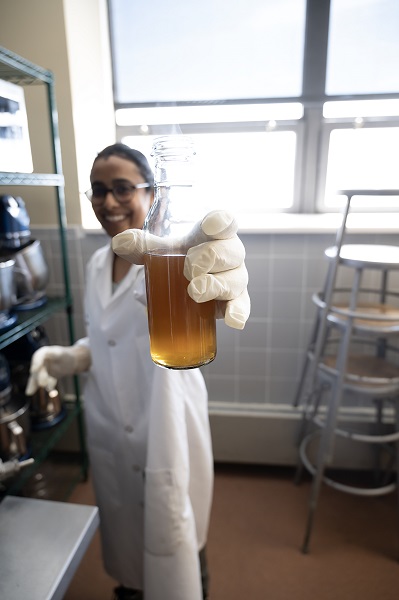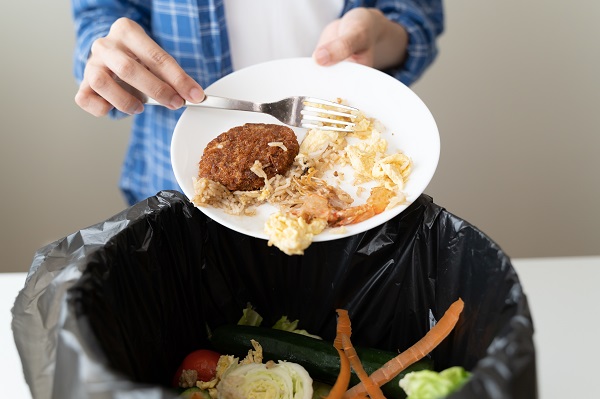PI Jonathan Deutsch Receives EPA Grant
April 20, 2023
 The U.S. Environmental Protection Agency (EPA) reports that nearly 40 percent of all food in the United States is wasted every year — that’s 80 billion pounds. It would be like every person in America tossing more than 650 average-sized apples right into a landfill. So, the EPA, as part of its Science to Achieve Results (STAR) program, made funding available for innovative solutions to reduce household food waste, specifically through prevention, and College of Nursing and Health Professions' Jonathan Deutsch, PhD, professor in Food and Hospitality Management and director of Drexel’s Food Lab, is receiving some of those funds. He has been awarded $739K with Co-I Brandy-Joe Milliron, PhD, associate professor in Nutrition Sciences, for a research project entitled Culinary Home Empowerment for Food Waste Prevention and Minimization (CHEF-WPM).
The U.S. Environmental Protection Agency (EPA) reports that nearly 40 percent of all food in the United States is wasted every year — that’s 80 billion pounds. It would be like every person in America tossing more than 650 average-sized apples right into a landfill. So, the EPA, as part of its Science to Achieve Results (STAR) program, made funding available for innovative solutions to reduce household food waste, specifically through prevention, and College of Nursing and Health Professions' Jonathan Deutsch, PhD, professor in Food and Hospitality Management and director of Drexel’s Food Lab, is receiving some of those funds. He has been awarded $739K with Co-I Brandy-Joe Milliron, PhD, associate professor in Nutrition Sciences, for a research project entitled Culinary Home Empowerment for Food Waste Prevention and Minimization (CHEF-WPM).
 This is exactly in Deutsch’s wheelhouse. He has been engaged in food waste prevention and minimization work in a variety of ways for a while. He and the folks at the Food Lab provide technical assistance to restaurants, hotels and retailers to help them reduce their waste. They are working with entrepreneurs to develop upcycled food products from ingredients that would otherwise be wasted such as brewery and distillery spent grain, okara from soy milk production and avocado pits. And they have undertaken consumer education campaigns with retailers including Shoprite and the South Philly Food Co-op. “This research project is a logical extension of our work,” Deutsch commented. “We have already been doing a great deal with food business, from manufacturers to restaurants, to operate more efficiently.”
This is exactly in Deutsch’s wheelhouse. He has been engaged in food waste prevention and minimization work in a variety of ways for a while. He and the folks at the Food Lab provide technical assistance to restaurants, hotels and retailers to help them reduce their waste. They are working with entrepreneurs to develop upcycled food products from ingredients that would otherwise be wasted such as brewery and distillery spent grain, okara from soy milk production and avocado pits. And they have undertaken consumer education campaigns with retailers including Shoprite and the South Philly Food Co-op. “This research project is a logical extension of our work,” Deutsch commented. “We have already been doing a great deal with food business, from manufacturers to restaurants, to operate more efficiently.”
Deutsch’s CHEF-WPM has three objectives. The first is to develop and evaluate a series of culinary education videos for home cooks, adapted from professional culinary training. The second is to assess a series of informal and formal online interventions to determine the efficacy of each component of CHEF-WPM across a diverse range of U.S. consumers. And the final is to recommend effective ways to nationally scale effective elements of CHEF-WPM. “Our intended research is important because it investigates a highly scalable solution to strengthen consumers’ motivation, opportunity and ability to reduce food waste at home,” shared Deutsch.
 CHEF-WPM is partnering with ’s leading chefs and food waste educators, to work with culinary educators and students in the Drexel Food Lab — their primary goal is translating research-based practices into easily accessible learning modules focused on strengthening consumers’ positive behaviors. “These modules,” Deutsch explained, “will consist of a series of three to five videos, some edited as short reels, and downloadable recipes and worksheets.” Students will produce these informal educational videos and collect and analyze data to determine which approaches and messaging are most effective. “Because our students come from all over the world, we hope to produce content in multiple languages so that we can have maximum impact,” he noted.
CHEF-WPM is partnering with ’s leading chefs and food waste educators, to work with culinary educators and students in the Drexel Food Lab — their primary goal is translating research-based practices into easily accessible learning modules focused on strengthening consumers’ positive behaviors. “These modules,” Deutsch explained, “will consist of a series of three to five videos, some edited as short reels, and downloadable recipes and worksheets.” Students will produce these informal educational videos and collect and analyze data to determine which approaches and messaging are most effective. “Because our students come from all over the world, we hope to produce content in multiple languages so that we can have maximum impact,” he noted.
Since the EPA is looking for transdisciplinary approaches, Milliron, along with colleague Roni Neff, PhD, an associate professor at the Bloomberg School of Public Health at Johns Hopkins University, will be leading the scientific assessment of the program. The evaluation of CHEF-WPM is unique because it is designed to assess the effects of the intervention both when the program is accessed voluntarily in a population-based setting and through more intensive delivery in a community setting. “Findings from the two evaluation studies will be triangulated to help us understand larger conclusions about the intervention’s feasibility, acceptability and impact on motivation, opportunity and ability to reduce household food waste,” shared Milliron.
 This intended research supports the Agency’s research priorities in providing consumers with what they need to decrease waste at home. “Our hope is to empower home consumers to prevent and minimize food waste by applying professional culinary techniques to the home kitchen. By assessing the influence of our materials, we hope to publish guidance on evidence-based best practices for more elaborate and effective interventions to follow,” concluded Deutsch.
This intended research supports the Agency’s research priorities in providing consumers with what they need to decrease waste at home. “Our hope is to empower home consumers to prevent and minimize food waste by applying professional culinary techniques to the home kitchen. By assessing the influence of our materials, we hope to publish guidance on evidence-based best practices for more elaborate and effective interventions to follow,” concluded Deutsch.
Written by Roberta S. Perry